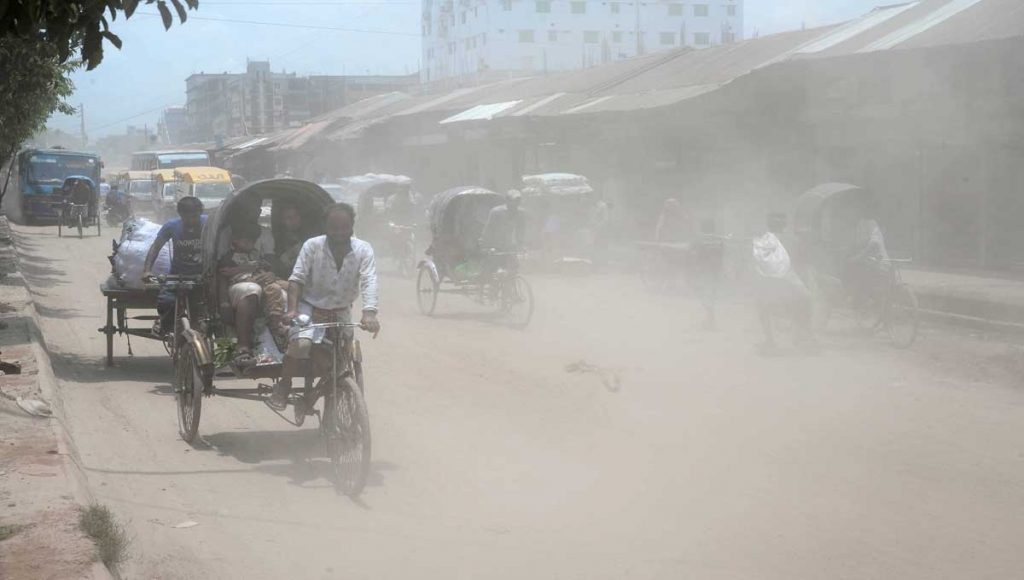Dhaka, Feb 12 – The densely populated capital of Bangladesh continues to dominate the list of world cities with the worst air quality. On Friday, Dhaka occupied the second position in the list. The city of Delhi in neighbouring India occupied the first place. The third and fourth spots were grabbed by Lahore of Pakistan and Beijing of China, respectively.
Dhaka’s air quality index (AQI) at 9 am read 312, which is considered ‘hazardous’.
An AQI between 201 and 300 is considered ‘poor’, while a reading of 301 to 400 is said to be ‘hazardous’, posing serious health risks to city residents.
AQI, an index for reporting daily air quality, is used by government agencies to inform people how clean or polluted the air of a certain city is, and what associated health effects might be a concern for them.
In Bangladesh, the overall AQI is based on five criteria pollutants – Particulate Matter (PM10 and PM2.5), NO2, CO, SO2, and Ozone (O3).
Bangladesh has a subtropical monsoon climate characterised by wide seasonal variations in rainfall, high temperatures and humidity. Generally, Dhaka’s air starts getting fresh when monsoon rains begin in mid-June. The air remains mostly acceptable from June to October.
In February last year, Bangladesh’s Environment, Forests and Climate Change Minister Md Shahab Uddin admitted that air pollution levels in the capital “has reached an extreme level”. “This is mainly due to uncontrolled discharge of dust from construction projects, smoke from vehicles and brick kilns,” he told UNB.
“Brick kilns are responsible for 58 percent air pollution in the capital. Plans have been taken to shut (traditional) kilns currently in operation. We plan to stop burning bricks at all kilns by 2025 and use block bricks to construct buildings under government projects” he said then.
Besides, on January 31, the High Court directed the authorities concerned to shut down all illegal brick kilns by February 18.
Air pollution consistently ranks among the top risk factors for death and disability worldwide. Breathing polluted air has long been recognised as increasing a person’s chances of developing heart disease, chronic respiratory diseases, lung infections, and cancer, according to several studies.
As per the World Health Organization (WHO), air pollution kills an estimated seven million people worldwide every year, largely as a result of increased mortality from stroke, heart disease, chronic obstructive pulmonary disease, lung cancer and acute respiratory infections.
Over 80 percent living in urban areas which monitor air pollution are exposed to air quality levels that exceed WHO guideline limits, with low- and middle-income countries most at risk. – UNB




